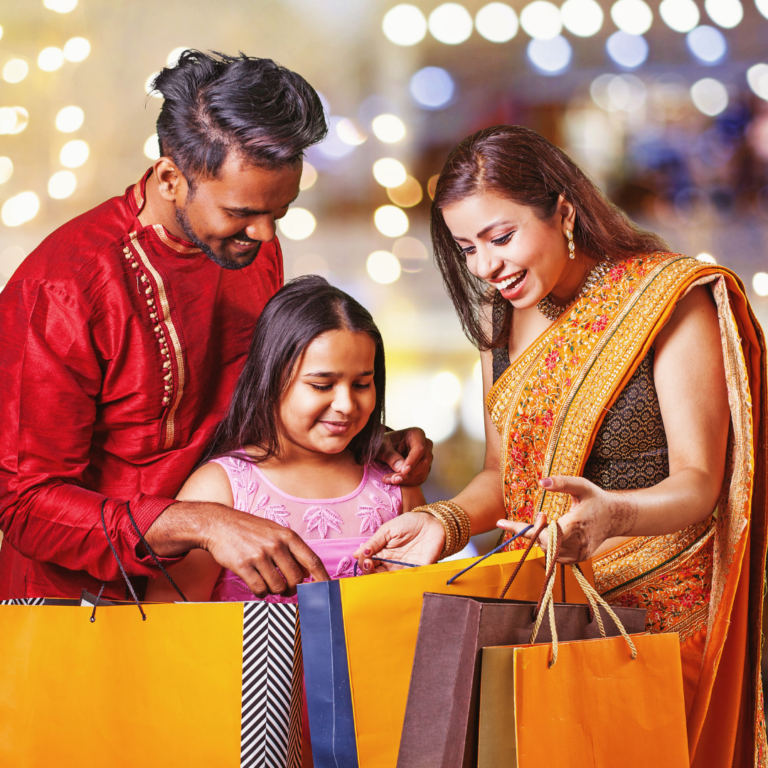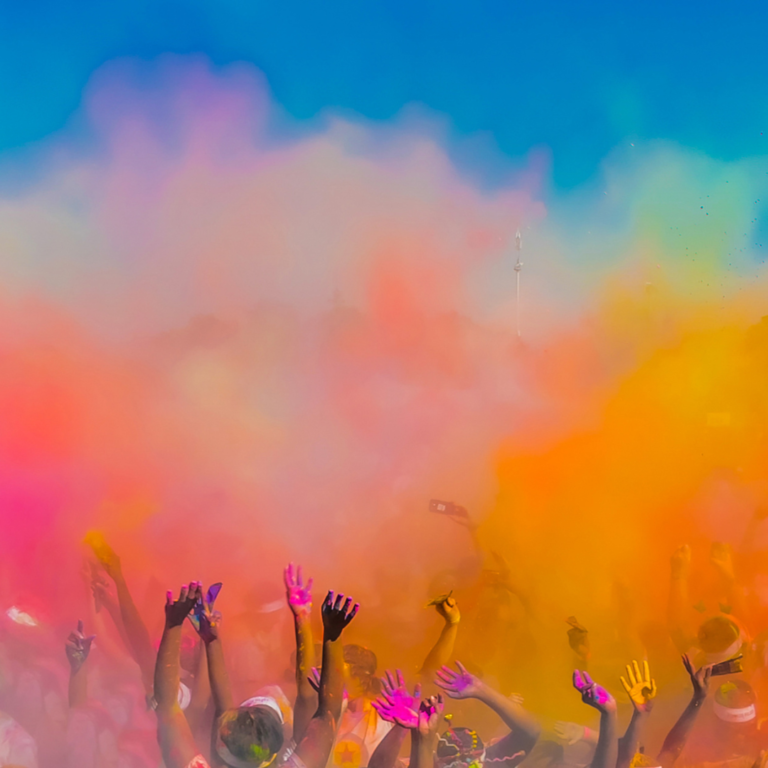BACKGROUND
The land of India is an adventure scented with festivals. Every month here trickles with the excitement of some festival or another as it is a multicultural country respecting all religions and encouraging people of different faiths to celebrate their deep-rooted beliefs with liveliness, enthusiasm, dedication and sincerity. With Hinduism being the largest religion in India, the central festival time starts in October, beginning with the mark of Dussehra (symbolizing the victory of good over evil) and lingering on till Diwali (the festival of lights) and Bhai Dooj (a sacred festival dedicated to the brother-sister bond). Other symbolic festivals include Holi (the festival of colours), Lohri (the festival of bonfire), Rama Navami, Hanuman Jayanthi, Janmashtami and the list goes on, as Hinduism is a polytheistic religion, dedicating every festival to a Hindu God or Goddess. Let us explore the major festivals of India in detail.
DIWALI (THE FESTIVAL OF LIGHTS)
It is one of the most awaited Hindu festivals. During this time, most parts of Northern India get wrapped into a blanket of lights, with the illuminating glow from the diyas (traditional oil lamps made of mud) reflecting the power of positivity. This festival commemorates the arrival of Lord Rama (one of the Hindu Gods) to his hometown Ayodhya with his wife Sita and brother Lakshmana after completing an exile of fourteen years in a forest and after conquering victory over the evil ten-headed demon Ravana. People believe that Lord Rama’s return to his kingdom spread joy among the inhabitants, and everyone decorated their houses with diyas to express their gratitude. During Diwali, Melas (traditional carnivals) become a popular sight in the country, hosting decorative symbols of Hindu deities, mouth-watering Indian sweets like Laddu, Barfi, Gulab-Jamun and the traditional Indian ice cream called Kulfi, traditional sarees and suits for Indian women, kurtas and pajamas for Indian men, street food like chaat and golgappas and many other local artifacts. Every year before Diwali, a famous Hindu tradition occurs called the Ram Lila, where the story of Diwali is enacted live on the stage by amateur actors playing the roles of various characters that form the story of this festival. It is done during Dussehra time when publicly burning the statue of Ravana is also a significant ritual.
Furthermore, on the day of Diwali, people worship Lord Ganesha (the Elephant Hindu God) and Goddess Lakshmi (the deity of prosperity) to manifest their success and invite wealth to rain in their houses as a blessing by the Gods. Children enjoy bursting firecrackers after the evening prayers to highlight their happiness and enjoyment. If one has not visited India during Diwali, they are missing an experience of a lifetime.
JANMASHTAMI
Janmashtami dedicates the birth of Lord Krishna (another Hindu God), who played a vital role in various spheres by first defeating his wicked uncle Kansa who possessed vain dreams of becoming immortal and then supporting the Pandavas in the Mahabharata war to defeat the Kauravas. The significance of pouring rain during this festival is considered sacred, as when Lord Krishna was born, it had been raining heavily. During this time, people adore going to worship in the temples and sing hymns in memory of Lord Krishna and his symbolic flute. There is also a tradition where people bathe statues of Lord Krishna with milk in their homes, dress him in traditional wear, including a crown, and place a flute between his hands before making him sit in a miniature swing. Then they push gently on the swing and give butter as prasad (holy offering) to Lord Krishna, who had humorously been nicknamed the butter thief in childhood due to his passion for eating butter. This is another festival awaited with much anticipation by the devotees of Lord Krishna.
HOLI (THE FESTIVAL OF COLOURS)
This playful festival of colors raises everyone’s spirits in the country. It brings out one’s mischievous side as people take pride in decorating each other by applying various colors on the face and soaking their entire body by throwing water balloons and firing water with pichkari (traditional water guns). It is funny as people get scared of walking on the streets during the days of Holi due to children who adore being pranksters by hiding on their balconies and targeting water balloons on innocent people walking down to drench them with water. It is not surprising to see people looking up at the balconies and yelling at the top of their lungs after being attacked by water balloons. Decorating houses with designs of rangoli is also an attraction during this time. This festival symbolizes the eternal love between Lord Krishna and Goddess Radha. It shows their innocence as it is believed that Lord Krishna asked Radha to change the color of his face with whatever color she liked during their childhood phase. Parties are an essential theme of Holi, where the rain dance is prevalent. Visiting India during the festival of Holi is a daring adventure if one does not like getting wet unexpectedly.
CONCLUSION
Indian festivals can become a way to combat depression and loneliness as large gatherings are familiar, with singing and dancing being significant. Festival time is also like a paradise for foodies as there would not be a single household where one cannot sniff the scent of delicious food being prepared. It is also an excellent environment for photography, as the blend of decorations and the bustling environment make it ideal for capturing great shots. So do not miss a chance to be in India when it’s approaching a festival.







